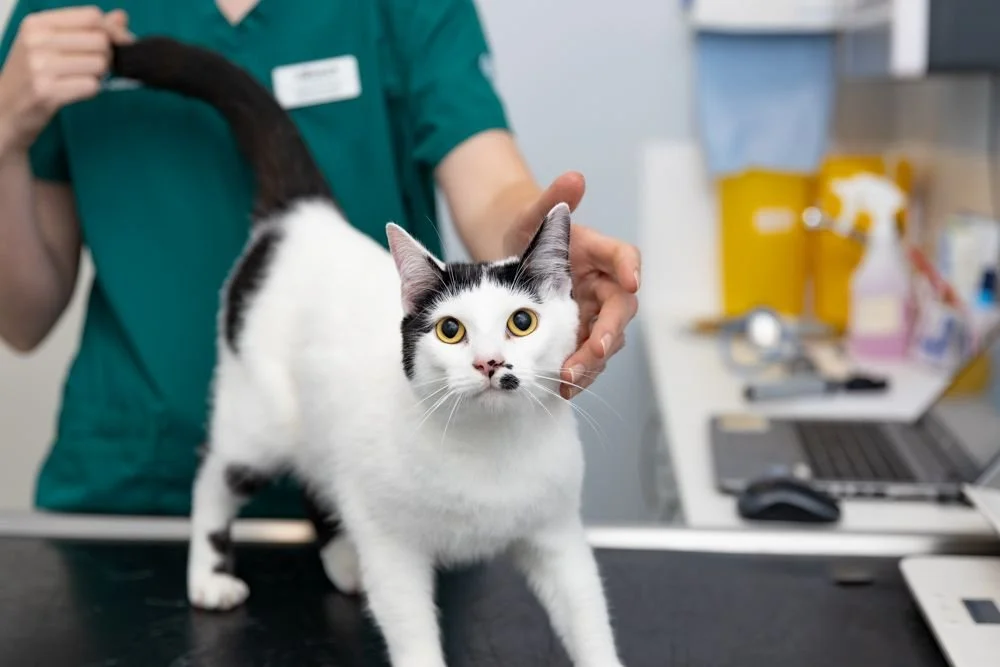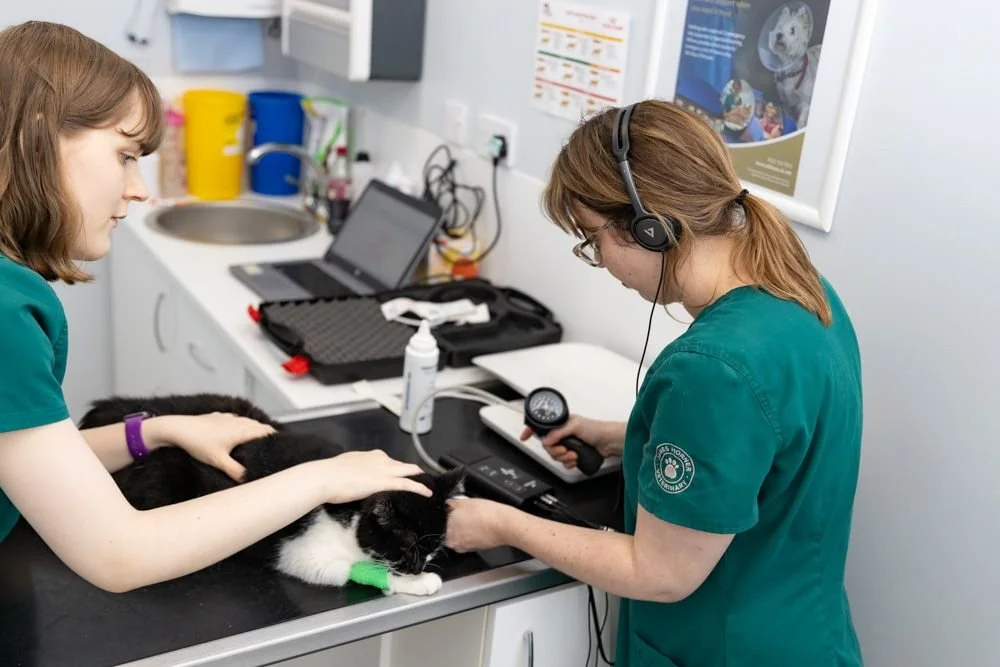Understanding hypertension in cats!
Authored by Kat Hull
Hypertension in cats….
Hypertension, or high blood pressure, is a condition that affects 1 in 5 cats from 9 years of age. If left untreated, hypertension can lead to serious health problems, including damage to the eyes, brain, heart, and kidneys.
In this article, we'll take a closer look at hypertension in cats, it’s causes, symptoms, and treatment options.
Causes of Hypertension in Cats
There are several factors that can contribute to hypertension in cats, including:
Kidney disease: Cats with chronic kidney disease are at a higher risk of developing hypertension.
Hyperthyroidism: This is a common condition in older cats, and it can lead to hypertension.
Obesity: Cats that are overweight or obese are more likely to develop hypertension.
Age: As cats age, they become more susceptible to hypertension.
Symptoms of Hypertension in Cats
Hypertension is often called the "silent killer" because cats may not show any symptoms until the condition has become severe. Some of the signs that might be seen:
Hypertension can cause damage to the blood vessels in the back of the eye, leading to blindness.
Seizures: Cats with hypertension may experience seizures.
Behavior changes: Cats with hypertension may become disorientated, more irritable or lethargic.
Increased thirst and urination: Hypertension can lead to kidney damage, which can cause cats to drink and urinate more than usual.
Nosebleeds: Cats with hypertension may experience nosebleeds.
Heart disease: Hypertension in cats can lead to thickening of the heart muscle and secondary heart problems.
If you notice any of these symptoms in your cat, it's important to make an appointment with one of our vets as soon as possible.
Diagnosing Hypertension in Cats
Hypertension is diagnosed by measuring your cat's blood pressure. This is done using a blood pressure monitor specifically designed for cats, using a cuff that is placed around the cat's leg or tail.
In some cases, additional testing may be necessary to determine the underlying cause of hypertension. This may include blood and urine tests to evaluate kidney function and thyroid hormone levels.
Treatment Options for Hypertension in Cats
If your cat is diagnosed with hypertension, we will work with you to develop a treatment plan. Depending on the severity of the condition, treatment options may include:
Medications: There are several medications that can help to lower your cat's blood pressure.
Treatment of any underlying conditions. As hypertension can often secondary to another condition, it is important that this is addressed and treated in order to help reduce blood pressure
Diet and lifestyle changes: We may recommend changes to your cat's diet and exercise routine to help manage their hypertension.
Monitoring: We will likely recommend regular blood pressure checks and monitoring of any underlying conditions.
Conclusion
In conclusion, hypertension is a serious condition that can unfortunately affect many of the patients we see. While the condition may not have any visible symptoms, it can lead to serious health problems if left untreated. If you are worried that your cat may have hypertension, or any of the underlying conditions discussed in this article, please contact us to make an appointment. With early diagnosis and proper treatment, most cats with hypertension can be managed successfully to keep their blood pressure down and avoid the harmful effects it might otherwise have on their body.


